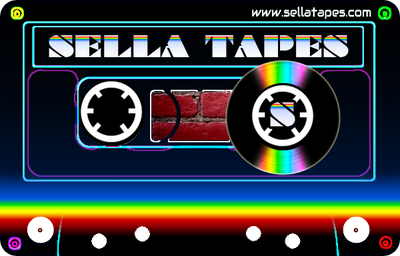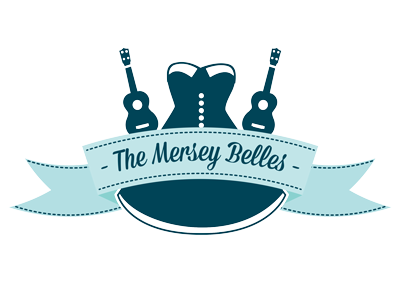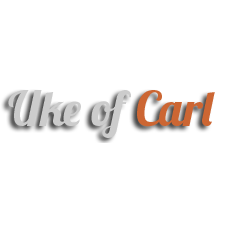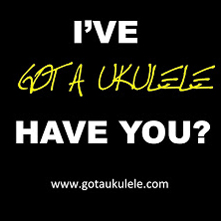P = Peter
A = Andrew
Z = Zarino
S = Sanchez
C = Christian
D = David
Q. How long have you been playing ukulele and why did you decide ukulele ?
P. For just under 1 year. I was watching my collection of guitars gathering dust for a year or two but wanted to keep an interest in playing stringed instruments, and a type of person you meet once in a lifetime recommended UCL to me. Here I am now.
A. I have been playing for about a year and a half. I knew someone who played and the sound made me feel happy.
Z. I heard about UCL in August last year, when they applied to Awesome Liverpool for £500 to run a kids’ ukulele summer-school. It looked like so much fun, I bought a cheap £15 ukulele and joined!
Q. What music influences you in general?
Z. I listen to everything from funky French gypsy jazz to 70s prog to ambient electro stuff. But I guess, if I had to pick the single artist that I keep coming back to, it’d be Death Cab For Cutie.
S. I’ve a real weakness for jangly ‘80s/’90s indie (The Smiths, Felt, James, Stone Roses) but am generally a big blues and folk fan (Tom Waits, Sixto Rodriguez, Tim Buckley, Nick Drake, John Martyn, Fairport Convention), West Coast ‘60s American stuff (Love, The Byrds, Buffalo Springfield, the Beach Boys)
D. Folky, bluesy beardy music and twee indie. I had a metal phase as a teen. And sometimes I listen to really loud funk or hip-hop.
Q. How would you describe your sound?
P. Awful, hilarious, nuanced, intelligent, shoddy, soulful, harmonious, melodic, relaxing, tense, subtle, or make up your own mind about it.
A. It’s like an eclectic utopian vision of a future where angst ridden pink and baby blue poodles have at last taken their place as the dominant species.
Z. Human Error is all about hammering out those anthems from your youth. The type you find yourself singing along to with a hairbrush in the mirror. For me, that’s the Pokémon theme tune.
C. Discorockfolkstep
Q. Do you write your own songs or is this something you may consider for the future?
P. I have been a prolific lyric writer in the past, but I’m not sure if that fell into the realms of really bad poetry or not. A long term goal for Human Error should include original material.
A. I write lyrics but they don’t seem to have much rhythm – they keep going all over the place, I don’t think music would like them.
S. I have in the past and would again
Q. Please describe your overall experience at UCL
P. I remember the first couple of classes and one or two songs were to be sung. Elaine and Lindsey, our tutors at UCL, asked for singers to come forward and not many people did. How times have changed, now we play events, gigs, festivals, and sing our hearts out.
A. Fun fun fun fun fun joy, fun fun, joy, fun fun fun, joy
C. I've had a great year. I've met some fantastic people, had some interesting experiences and feel a real sense of achievement.
D. Extremely positive, everyone's super nice and helpful. Anytime I've gotten stuck whilst learning something, there's been someone to help out. I don't know if the ukulele attracts happy people, or whether it makes it people happy, but it's been a blast so far.
Q. Would you recommend learning the ukulele and if so why?
P. The ukulele is such a welcoming instrument in its design and sound. Comfortable to hold, and a fresh timbre all of its own. Can make music that you’ve played before on other instruments come back alive and sound new.
Z. Pick up a ukulele, and in 15 minutes you’ve got two chords and a strumming pattern, and you’re away. It is an instrument with literally no learning curve. And it’s a gateway drug to all sorts of other instruments – guitars, basses, percussion, singing. The ukulele rocks.
S. Yes. It’s the instrument which is most likely to change someone’s mind about whether they’re musical or not. It’s incredibly accessible, even those with the dexterity of a hippo wearing mittens will quickly be able to pick up the few chords needed to play thousands of songs.
D. Yup, it's a fun instrument easy to learn with a lot of depth. It's really portable too.
Q. Where can we find you playing outside of UCL?
S. The Human Error ‘project’ may still be somewhat embryonic but we’re gathering momentum fast and will be bemusing and amusing in equal measure on the 17th of this month at the Nordic Church.
P. Currently rehearsing with the group in some of their homes, and trying to squeeze in practice on my own in various buildings at work.
C. Only my living room at the moment, my neighbour has yet to complain.
Q. What does the future hold for Human Error
Z. More kids’ TV tunes, I hope! But seriously, Human Error’s already gone so much further than I think any of us ever really expected. It’ll be awesome to see where it takes us next.
D. I'd like to keep going with Human Error, and also maybe start a side project to do more weird things with.
P. If we carry on then continual development and improvement will take place, which could lead us anywhere we want it to take us.
Q. What message or wise words would you like to send out into the world this Christmas?
P. We are not just here to manage capitalism but to change society and to define its finer values - Tony Be
A. Fill your moon boots with joy and excitement.
Z. Have another mince pie this Christmas. You are awesome and you deserve it.
S. It’s not about shopping or ‘cute’ advert campaigns. For me it’s not about religion and it’s not even about Christmas TV (although I do like the Snowman). It’s about renewing relationships that you might find yourself neglecting in the midst of life and above all, resting, physically and mentally.
C. Be excellent to each other.
D. There's a quote from David Foster Wallace that's been stuck in my head for a long time: “Our own present culture has harnessed these forces in ways that have yielded extraordinary wealth and comfort and personal freedom. The freedom all to be lords of our tiny skull-sized kingdoms, alone at the centre of all creation. This kind of freedom has much to recommend it. But of course there are all different kinds of freedom, and the kind that is most precious you will not hear much talk about much in the great outside world of wanting and achieving.... The really important kind of freedom involves attention and awareness and discipline, and being able truly to care about other people and to sacrifice for them over and over in myriad petty, unsexy ways every day.”












 RSS Feed
RSS Feed